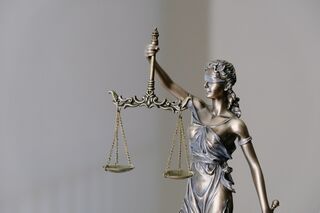Sexual Abuse
Is Jurors’ Sexual Abuse History Relevant in Sexual Abuse Cases?
Applications for the Ghislaine Maxwell trial.
Posted October 26, 2022 Reviewed by Devon Frye
Key points
- A juror who did not disclose his history of sexual assault during voir dire (i.e., jury selection) served on the Ghislaine Maxwell trial.
- Psychological research informs whether sexually abused jurors should be excluded from serving as jurors in child sexual abuse trials.
- Sexually abused jurors are more empathic for child victims compared to non-sexually abused jurors.
- Sexual abuse history could make jurors more accurate in judging child sexual abuse cases compared to others without such experiences.
by Tayler M. Jones-Cieminski, Ph.D., Postdoctoral Fellow in Pediatric Neuropsychology, University of Wisconsin-Madison, Neurology; Margaret C. Stevenson, Ph.D., Associate Professor of Psychology, Kenyon College, President-Elect of APA, Division 37 Section on Child Maltreatment; Bette L. Bottoms, Ph.D., Dean Emerita of the Honors College and Professor Emerita of Psychology, University of Illinois at Chicago

Few trials involving child sexual abuse have reached the level of notoriety as United States v. Ghislaine Maxwell. Maxwell was convicted of five counts of child sex trafficking stemming from her involvement in Jeffrey Epstein’s sexual abuse of minors and sentenced to 20 years in prison.
But a month later, a juror in her case—self-identified as Scotty David—admitted that he had experienced child sexual abuse himself and that he had discussed his experience with fellow jurors during deliberations. As reported by The Independent, he had marked “no” when asked about his history of child sexual abuse on his pre-trial jury questionnaire.
The defense then requested a retrial, which trial judge Alison Nathan ultimately denied following an evidentiary hearing regarding David’s jury questionnaire responses. In her 40-page opinion, she explained to strike a juror for cause, the question is “not simply whether an individual has had experiences similar to the issues that will be explored at trial, but whether the individual can serve fairly and impartially,” which she determined he was able to do.
Does a history of child sexual abuse influence jurors’ decisions in child sexual abuse cases? Attorneys and judges intuit that it might, routinely asking about such experiences during voir dire (i.e., jury selection). Our recent research provides scientific evidence indicating that jurors’ sexual abuse experiences generally influence their judgments in sexual abuse cases.
The Influence of Jurors’ Sexual Abuse Experiences on Case Judgments: What the Science Reveals
Many laboratory and field studies have examined the impact of various juror characteristics, experiences, and attitudes on their reactions to victims and case judgments in child sexual abuse cases. Ours is the only published empirical study examining how jurors’ own sexual abuse experience influences their judgments in child sexual abuse cases.
We used meta-analyses to combine data from nine existing studies in which 2,447 adults played the role of juror and considered details of a realistic mock child sexual abuse trial, then made case judgments. Practicing attorneys reviewed materials to ensure realism. Mock jurors determined victim credibility, made verdicts, and indicated their confidence in that guilt judgment.
Weeks or months before the mock trial, participants indicated the extent to which they generally empathized with child sexual abuse victims on the 11-item Child Victim Empathy Scale. At that time, the mock jurors also responded to a jury questionnaire assessing whether they themselves had ever been sexually abused as an adult or a child and whether they personally knew someone who had been sexually abused as an adult or a child.
Our diverse sample of jury-eligible undergraduates included 14 percent who indicated being abused as a child, 17 percent who indicated being abused as a child or as an adult, and 43 percent who indicated being either abused as a child or adult or knowing someone who was sexually abused. These percentages are similar to national statistics on sexual abuse victims.
In keeping with attorney and trial consultant intuitions, we found scientific evidence that compared to non-victims, potential jurors in child sexual abuse cases who have directly or vicariously experienced child sexual abuse:

- empathize more with other child victims
- are more likely to find child victims credible
- are more likely to convict
Even though abused jurors were as a group more likely to be pro-victim and convict compared to the non-abused jurors, abused jurors who were more child-victim empathic were most likely to convict; those with lower levels of child-victim empathy were less likely to convict. This is true among non-abused mock jurors in another study.
Implications for Trial Practice
Should prospective jurors with histories of past abuse be dismissed for cause because they are unable to apply the law without bias in a particular child sexual abuse case? Although we are scientists, not philosophers of jurisprudence, we would argue that the answer to this question is “No,” and that our findings should not be taken as evidence otherwise. As we have argued elsewhere in detail, answering this question requires a careful examination of several issues.
First, our effects indicate that other factors we did not measure also affect case judgments, including, of course, case evidence. Even so, Bottoms et al. found that juror empathy and attitudes are powerful enough to manifest even when evidence is strong and unambiguous.
Second, it is always difficult to predict specific individual behavior from group trends. Our study found meaningful effects derived from over 2,400 mock jurors; simply knowing one individual juror’s abuse history does not allow us to predict that particular person’s verdict.
Third, if we define a “good juror” as one who makes an “accurate” decision (i.e., acquits or convicts in keeping with laws and legal evidence), then base rates alone would suggest that sexually abused jurors are more likely to be “good” than “bad.” Why? Child sexual abuse is pervasive: 20 to 26.6 percent of girls and 5 to 8 percent of boys report abuse, and many more cases are never disclosed or discovered.
Further, the vast majority of child sexual abuse disclosures reflect true abuse, not fabricated claims, and strong evidence is needed for a prosecutor to take a case to trial. Based on math alone, most child sexual abuse trials probably involve instances of actual child abuse committed by the defendant; however, this is not to suggest all defendants are guilty.
Fourth, given the high incidence of child sexual abuse, many prospective jurors have personally experienced sexual abuse or know someone who has (43 percent combined in our sample). Excluding these individuals would produce an unrepresentative jury, threatening the foundational assumption that defendants deserve a jury of their peers (which does include sexual abuse victims), as well as the assumption that jury members are widely diverse. Jury diversity promotes longer, more vigorous, and more complete discussions of case evidence, leading to more legally accurate decisions.
Abuse experience is one among thousands of experiences that make jurors individuals, and one more piece of experience they should draw from while deliberating. Abused jurors are particularly well-positioned to educate others, calling out inaccurate myths about rape and child sexual abuse.
Fifth, be careful about the definition of bias. It is not bias when one’s legal decision is simply shaped by one’s experiences, attitudes, or interpretation of the evidence. As put by Dr. Shari Diamond, “All human decision-makers (judges as well as jurors) find it necessary to draw on their prior experiences to make sense of what they see and hear (p. 51).” No evidence exists showing abusive experiences prevent jurors from using legal evidence and the law to render decisions.
A final issue to consider is the challenge of assessing jurors’ abuse experiences. Prospective jurors may not be able or willing to answer jury selection questions about abuse experiences due to shame, privacy concerns, normal forgetting, relabeling of abusive experiences, misunderstanding of the questions, and the methodological limitation of waning participant attention exacerbated by lengthy survey questionnaires. In fact, Scotty David reportedly “flew through” the jury questionnaire and stated he “did not recall” being asked whether he or a family member had been a “victim of sexual harassment, sexual abuse or sexual assault…” and if so, whether he believed the experience would affect his "ability to serve fairly and impartially as a juror in this case.”
Regarding the latter part of that question, we do know that social psychological research shows that even if humans can recognize their attitudes or biases, they are not able to judge the extent to which such attitudes will influence their future behavior. Setting that aside, jurors might not appropriately categorize their sexual abuse experiences as legitimate experiences of sexual abuse. The method preferred by scientists who study child abuse is to provide specific, well-defined examples of the target type of abuse. Courts would benefit from doing the same, and of course should also include attention checks in lengthy jury questionnaires.
Including Sexually Abused Jurors in Child Sexual Abuse Cases Facilitates Justice
Legal conventional wisdom has presumed that it is fair to strike abused jurors, but not jurors who were not abused. We argue, as have others, that there are many benefits to including abused people on juries in child sexual abuse cases. Parallel arguments have been raised by researchers about the benefits of including victims and victim-empathic jurors (and judges) in rape cases and domestic abuse cases. In fact, after talk of abused jurors being struck in Harvey Weinstein’s sexual harassment trial, a trial consultant expressed the concern that “broad dismissals like that raise questions of discrimination against sexual assault survivors.”
Jury selection ought not to produce jury compositions disproportionately biased for defendants to the detriment of victims whom the law is designed to protect.
Edits by: Ashley M. Votruba, J.D., Ph.D., SPSSI Blog Editor, Assistant Professor, University of Nebraska–Lincoln
References
Archer, R. L., Foushee, H. C., Davis, M. H., & Aderman, D. (1979). Emotional empathy in a courtroom simulation: A person-situation interaction. Journal of Applied Social Psychology, 9, 275-291. http://dx.doi.org/10.1111/j.1559-1816.1979.tb02711.x
Ajzen, & Sheikh, S. (2013). Action versus inaction: anticipated affect in the theory of planned behavior. Journal of Applied Social Psychology, 43(1), 155-162. https://doi.org/10.1111/j.1559-1816.2012.00989.x
Bandes, S. (1996). Empathy, narrative, and victim impact statements. The University of Chicago Law Review, 63(2), 361-412. https://doi.org/10.2307/1600234
Bochnak, B. (2012, March 27). Harming children: Uncovering and overcoming bias when defending sex crimes against children. The Jury Expert. https://www.thejuryexpert.com/2012/03/harming-children-uncovering-and-overcoming-bias-when-defending-sex-crimes-against-children/
Bottoms, B. L., Peter-Hagene, L. C., Epstein, M. A., Wiley, T. R. A., Reynolds, C. E., & Rudnicki, A. G. (2016). Abuse characteristics and individual differences related to disclosing childhood sexual, physical, and emotional abuse and witnessed domestic violence. Journal of Interpersonal Violence, 31, 1308-1339. https://doi-org.proxy.cc.uic.edu/10.1177/0886260514564155
Burke, K. C., Petty, T., Jones, T. M., Stevenson, M. C., Silberkleit, G., Bottoms, B. L. (2020). Adults' perceptions of law-involved minority children and youth: Implications for researchers and professionals. In M. C. Stevenson, B. L. Bottoms, & K. C. Burke (Eds.), The Legacy of Racism for Children (pp. 189-210. Oxford University Press.
Cramer, R. J., Adams, D. D., & Brodsky, S. L. (2009). Jury selection in child sex abuse trials: A case analysis. Journal of Child Sexual Abuse, 18, 190-205. https://doi.org/10.1080/10538710902743974
Cross, T. P., Whitcomb, D., & De Vos, E. (1995). Criminal justice outcomes of prosecution of child sexual abuse: A case flow analysis. Child Abuse & Neglect, 19, 1431-1442. http://dx.doi.org/10.1016/0145-2134(95)00106-2
Deitz, S. R., Blackwell, K. T., Daley, P. C., & Bentley, B. J. (1982). Measurement of empathy toward rape victims and rapists. Journal of Personality and Social Psychology, 43, 372-384. http://dx.doi.org/10.1037/0022-3514.43.2.372
Diamond, S. S. (2007). How jurors deal with expert testimony and how judges can help. Journal of Law and Policy, 16, 46-67. https://brooklynworks.brooklaw.edu/jlp/vol16/iss1/4
Finkelhor, D., Shattuck, A., Turner, H. A., & Hamby, S. L. (2014). The lifetime prevalence of child sexual abuse and sexual assault assessed in late adolescence. Journal of Adolescent Health, 55, 329-333. https://doi.org/10.1016/j.jadohealth.2013.12.026
Fulero, S. M., & DeLara, C. (1976). Rape victims and attributed responsibility: A defensive attribution approach. Victimology, 1, 551-563.
Golding, J., Malik, S., Jones, T. M., Burke, K. C., & Bottoms, B. L. (2020). Jurors’ perceptions of child sexual assault victims. In Pozzulo, J., Pica, E., & Sheahan, C. (Eds.), Memory and sexual misconduct: Psychological research for criminal justice. Taylor & Francis.
Goodman, G. S., Bottoms, B. L., Herscovici, B. B., & Shaver, P. R. (1989). Determinants of the child victim’s perceived credibility. In S. J. Ceci, D. F. Ross, & M. P. Toglia (Eds.), Perspectives on the child witness (pp. 1-22). Springer-Verlag. http://dx.doi.org/10.1007/978-1-4613-8832-6_1
Goodman, G. S., Ghetti, S., Quas, J. A., Edelstein, R. S., Alexander, K. W., Redlich, A. D., Cordon, I. M., & Jones, D. P. H. (2003). A prospective study of memory for child sexual abuse: New findings relevant to the repressed-memory controversy. Psychological Science, 14, 113-118. https://doi.org/10.1111/1467-9280.01428
Jones, T. M., Bottoms, B. L., & Stevenson, M. C. (2020). Child victim empathy mediates the influence of jurors’ sexual abuse experiences on child sexual abuse case judgments: Meta-analyses. Psychology, Public Policy, and the Law, 26(3), 312-332. http://dx.doi.org/10.1037/law0000231
Lyon, T. D. (2007). False denials: Overcoming methodological biases in abuse disclosure research. In M. Pipe, M. E. Lamb, Y. Orbach, A. Cederborg (Eds.), Child sexual abuse: Disclosure, delay, and denial (pp. 41-62). Routledge.
Lyon, T. D. (2009). Abuse disclosure: What adults can tell. In B. L. Bottoms, C. Najdowski, & G. S. Goodman (Eds.), Children as victims, witnesses, and offenders: Psychological science and the law (pp. 19-35). Guilford Press.
Mallios, C. & Meisner, T. (2010). Educating juries in sexual assault cases. Strategies. http://www.ncdsv.org/images/AEquitas_EducatingJuriesInSexualAssaultCasesPart1_7-2010.pdf
Moghe, S. & Vera, A. (2022, February 24). Juror in Ghislaine Maxwell trial may have lied on jury questionnaire form. CNN. https://www.cnn.com/2022/02/24/us/ghislaine-maxwell-trial-juror/index.html
Nemeth, C. J. (1995). Dissent as driving cognition, attitudes, and judgments. Social Cognition, 13(3), 273-291. https://doi.org/10.1521/soco.1995.13.3.273
O’Donohue, W., Cummings, C., & Willis, B. (2018). The frequency of false allegations of child sexual abuse: A critical review. Journal of Child Sexual Abuse, 27, 459-475. http://dx.doi.org/10.1080/10538712.2018.1477224
Osborne-Crowley, L. (2022, January 5). Ghislaine Maxwell juror breaks silence to The Independent: ‘This verdict is for all the victims’. The Independent. https://www.independent.co.uk/news/world/americas/maxwell-juror-account-abuse-b1986478.html
Pereda, N., Guilera, G., Forns, M., & Gómez-Benito, J. (2009). The prevalence of child sexual abuse in community and student samples: A meta-analysis. Clinical Psychology Review, 29, 328-338. http://dx.doi.org/10.1016/j.cpr.2009.02.007
Phillips, Mannix, E. A., Neale, M. A., & H. Gruenfeld, D. (2004). Diverse groups and information sharing: The effects of congruent ties. Journal of Experimental Social Psychology, 40(4), 497-510. https://doi.org/10.1016/j.jesp.2003.10.003
Plotkin, C. (2020, April 4). Jury selection for sexual harassment and sexual-assault cases: Be prepared for a mentally and emotionally draining jury selection. Advocate Magazine. https://www.advocatemagazine.com/images/issues/2020/04-april/reprints/Plotkin.pdf
Poldrack, R. A., Monahan, J., Imrey, P. B., Reyna, V., Raichle, M. E., Faigman, D., & Buckholtz, J. W. (2018). Predicting violent behavior: What can neuroscience add? Trends in Cognitive Sciences, 22, 111-123. http://dx.doi.org/10.1016/j.tics.2017.11.003
Sherman, C. (2020). Lawyers in the Harvey Weinstein case are asking prospective jurors if they’ve ever been sexually abused: The question, while certainly sensitive, isn’t uncommon in sexual and domestic violence cases. Vice. https://www.vice.com/en_us/article/akwgw4/lawyers-in-the-harvey-weinstein-case-are-asking-prospective-jurors-if-theyve-ever-been-sexually-abused
Sommers, S. R. (2006). On racial diversity and group decision making: Identifying multiple effects of racial composition on jury deliberations. Journal of Personality and Social Psychology, 90(4), 597-612. https://doi.org/10.1037/0022-3514.90.4.597
Stidham, A. W., Draucker, C. B., Martsolf, D. S., & Mullen, L. P. (2012). Altruism in survivors of sexual violence: The typology of helping others. Journal of the American Psychiatric Nurses Association, 18, 146-155. https://doi-org.proxy.cc.uic.edu/10.1177/1078390312440595
Tedeschi, R. G. (1999). Violence transformed: Posttraumatic growth in survivors and their societies. Aggression and Violent Behavior, 4, 319-341. https://doi.org/10.1016/S1359-1789(98)00005-6
United States v. Maxwell, 527 F. Supp. 3d 659 (2021).
United States v. Maxwell, 2022 U.S. Dist. LEXIS 61718, *1, 2022 WL 986298 (S.D.N.Y. April 1, 2022).
U.S. Department of Justice (2022, June 28). Ghislaine Maxwell sentenced to 20 years in prison for conspiring with Jeffrey Epstein to sexually abuse minors [Press release]. https://www.justice.gov/usao-sdny/pr/ghislaine-maxwell-sentenced-20-years-prison-conspiring-jeffrey-epstein-sexually-abuse
Vidmar, N. (1997). Generic prejudice and the presumption of guilt in sex abuse trials. Law and Human Behavior, 21, 5-25. http://dx.doi.org/10.1023/A:1024861925699




